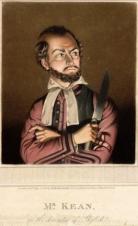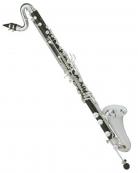Romanticism: A Class Chronology
Created by Dino Franco Felluga on Mon, 08/12/2019 - 11:58
Part of Group:
 This timeline is part of ENGL 202's build assignment. Research some aspect of Romanticism and then contribute what you have learned to our shared class resource. As the assignment states, "Add one timeline element, one map element and one gallery image about the Romantic period to our collective resources in COVE Editions. Provide sufficient detail to explain the historical or cultural detail that you are presenting. Interlink the three objects. A few timeline elements have already been added (borrowing from BRANCH).
This timeline is part of ENGL 202's build assignment. Research some aspect of Romanticism and then contribute what you have learned to our shared class resource. As the assignment states, "Add one timeline element, one map element and one gallery image about the Romantic period to our collective resources in COVE Editions. Provide sufficient detail to explain the historical or cultural detail that you are presenting. Interlink the three objects. A few timeline elements have already been added (borrowing from BRANCH).
Timeline
Chronological table
|
Date |
Event | Created by | Associated Places | |
|---|---|---|---|---|
| 17 Mar 1789 |
The Birth of Edmund KeanEdmund Kean was a famous british stage actor who revolutionized the protrayal of Shakesperian villians in the Romantic Period. Before Kean, Shakespearian actors were see as up-standing, tall, handsome, aristocratic men. Kean, however, was praised for his wild, theatrical, distorted protrayal in Shakespeare classics like Othello, Macbeth, Hamlet, King Lear, and more. Kean had a big hand in revitalizing and reinventing Shakespeare productions, mainly the tragedies, completely changing the perception and adaptations of Shakespeare for the rest of the Romantic period and on. Haunted by many demons and not handling fame well, his acting career was cut short, as his life ended after only 45 years. Even though his career was not long, he influenced many stage actors and writers of the Romantic period. Samuel Coleridge even claimed that "Seeing him act was like reading Shakespeare by flashes of lightning", showing just how influential and electric Kean was as an actor and story teller. https://www.thestage.co.uk/features/2018/rise-and-fall-of-the-great-georgian-actor-edmund-kean/ |
Caroline Cross | ||
| 1772 to 1846 |
Bass Clarinet: A new timbre for new timesMusic in the Romantic Era began to deviate from Classical conventions within all elements of music including tempo, dynamics, key and time signatures, and instrumental timbres. Varying timbre, in particular, was crucial for expressing the full range of emotions composers creatively sought to convey. A need for depth inspired the creation of new instruments, such as the bass clarinet. Originally deemed Gilles Lot's "basse-tube" in Paris 1772, the bass clarinet helped provide a richer, 3-octave sound that other reed instruments could not quite evoke. There were other variations created over the next 20 years bearing likenesses to a bassoon or saxophone, but the man credited for the most modern rendition is Adolphe Sax in the 1830's (patented in 1846). It was then that this instrument found its way into orchestral pieces-- scored solo by Giacomo Meyerbeer, then greatly popularized by composers Franz Liszt and Richard Wagner. The bass clarinet remains a versatile staple to major arranged works today, as its range is broader than any other non-percussion instrument. |
Liddy Freeman | ||
| 28 Jun 1712 to 2 Jul 1778 |
Jean-Jacques RousseauJean-Jacques Rousseau, born in Geneva, Switzerland, is named "The Father of Romanticism" because of his work in the Enlightenment period, where he wrote a very detailed and uncensored autobiography, titled Confessions. Rousseau's thinking was so forward, it did not conform to societal rules of the Elightenment period, paving the way for other creative minds to share their work in the upcoming era. This provided writers such as Mary Shelley, Edgar Allen Poe, and John Keats with a window of opportunity to show their creativity in their "abnormal" works. The individuality of their pieces brought forth the freedom, love of nature, and expressionism of the Romantic period. |
Evangelia Kaplanis | ||
| 28 Jun 1712 to 2 Jul 1778 |
Jean-Jacques RousseauJean-Jacques Rousseau, born in Geneva, Switzerland, is named "The Father of Romanticism" because of his work in the Enlightenment period, where he wrote a very detailed and uncencored autobiography, titled Confessions. Rousseau's thinking was so forward, it did not conform to societal rules of the Elightenment period, paving the way for other creative minds to share their work in the upcoming era. This provided writers such as Mary Shelley, Edgar Allen Poe, and John Keats with a window of opportunity to show their creativity in their "abnormal" works. The individuality of their pieces brought forth the freedom, love of nature, and expressionism of the Romantic period. |
Evangelia Kaplanis |


